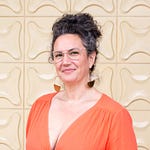Sarah Fay is an author at HarperCollins, an adjunct professor at Northwestern University, a freelance writer at The New York Times and elsewhere, a certified mental health peer recovery support specialist (PRSS), and a mental health keynote speaker who’s spoken to audiences across the country about recovery from mental illness.
We discuss her memoir Pathological, her thoughts on the Diagnostic and Statistical Manual of Mental Disorders (DSM), mental illness, writing on Substack and serializing her next novel Cured.1
Hello dear readers. Today, is a listening kinda day!
After reading Sarah Fay’s book Pathological, I had to know more. I was so curious about her story and I had so many questions. Many people know her through the teaching work she does on Substack with Writers at Work. She is an excellent teacher, but she is also a phenomenal writer. (She knows what she’s talking about when she’s teaching and leading workshops people!)
We didn’t have a lot of time, so we got right into it! I hope you enjoy our conversation as much as I did.
Here are some highlights:
On the Diagnostic and Statistical Manual of Mental Disorders (DSM)…
“It is really hard to understand and accept and know that the diagnoses we're using are scientifically flawed. They're completely scientifically invalid, meaning there's no way to prove them.”
On living well with a mental health diagnosis…
“I don't want anyone to think that in any way I'm questioning mental illness, or the severity of it, or mental and emotional distress because it's horrible.”
“What I'm arguing for is that people accept what they really are and what they aren't. And then also believe, yes, I could get well, you know, I could actually leave this behind.”
On Substack…
“I did learn, if I wanted to grow fast, I had to offer a service and that it's much slower growth if you're just writing essays.”
On her writing process…
“I just write every single morning without fail. And even if I can only touch it for a second, that's okay. Just open the document, and that's just to keep it in your mind basically, that is really the key.”
And some post-interview questions:
1) When working with your new psychiatrist, you mentioned diet plays a role in recovery, but were there other specific therapy tools and techniques you used? (i.e. CBT, EMDR, talk therapy, etc.) If so, which did you find most effective?
I did them all to little effect. Evolutionary psychiatry and theory had the greatest effect--though that's not technically a treatment. I had to understand that my brain is designed to keep me alive and always on the lookout for the negative, anxiety is a perfectly natural response to our overstimulating society, and depression is a perfectly natural response for a brain to calm itself after being overstimulated. All that transformed my relationship with myself to one of great compassion, which is what any therapeutic treatment is supposed to be about.
2) "What is the biggest thing you’ve had to unlearn in your life so far?”
I've had to unlearn the greatest myths that run our mental health system:
1) there's such a thing as a "chemical imbalance" (there isn't),
2) our mental and emotional distress are "diseases" that can't be cured, and
3) that we are supposed to be free of mental and emotional distress.
Life is much better having unlearned these. A great deal of my suffering came from not knowing that.
Be sure to check out Sarah’s follow up memoir Cured which she has serialized on Substack and is free to readers until the end of December (at which time it will go behind a paywall.)
The premise of Cured is simple: It’s possible to recover from every psychiatric condition: anxiety disorders, major depressive disorder, bipolar disorder, OCD, ADHD, eating disorders, schizophrenia, schizoaffective disorder, etc.









Share this post